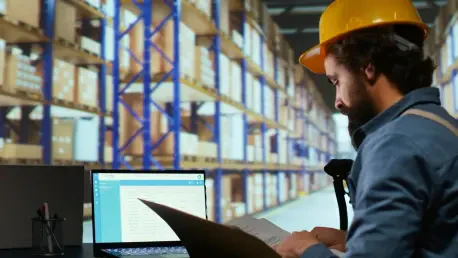Integrated logistics platforms are at the forefront of innovation in the logistics and supply chain industry, offering a technological leap that drastically transforms operational capabilities. As logistics firms navigate increasingly complex market demands, these platforms provide vital data integration and process automation solutions. The acquisition of Simply Deliver by Rail-Flow underscores a pivotal advancement in this domain, catalyzing enhancements in earlier efforts and bolstering efficiency within the logistics landscape.
Contextual Overview
In an era where technological agility defines business success, integrated logistics platforms have emerged as indispensable tools in optimizing supply chain operations. These platforms interlace multiple segments—rail, road, and intermodal transport—through seamless data connectivity, fostering transparency and elevating operational performance across Europe’s logistical framework. Rail-Flow’s recent acquisition of Simply Deliver exemplifies this integration drive, establishing a unique Transport Management Platform promising comprehensive solutions. As firms increasingly adopt interconnected logistics systems, these platforms present the essential backbone for end-to-end efficiency.
Analysis of Features and Performance
Thorough Data Integration Mechanism
The pillar of integrated logistics platforms lies in their ability to amalgamate diverse data points across various transport modalities, synthesizing information into coherent analytics for strategic decision-making. This robust integration facilitates predictive modeling, offering crucial insights that enable real-time adjustments to logistics operations. Rail-Flow’s merger with Simply Deliver leverages existing data capabilities, enhancing its transparency and offering real added value to logistics processes. The resultant platform aligns digital tools with logistics needs, ensuring data-driven efficiency.
Leveraging Automation for Optimization
Automation within these platforms serves as a catalyst for transforming traditional logistics approaches into streamlined, efficient practices. By harnessing automation components, platforms optimize processes, mitigating manual redundancies and accelerating the speed of logistics operations. This merger accentuates automation’s role within Rail-Flow’s platform, underlining its significance in achieving a modal shift and reducing CO2 emissions. Integrated into the platform, automation tools verify their practical utility, driving logistics sectors toward sustainable operational benchmarks.
Innovations and Trends
Emerging trends mark a notable evolution in logistics technology, with digital integration gaining prominence across industries. Rail-Flow and Simply Deliver’s integration underscores this shift, incorporating APIs and simplistic digital interfaces to adapt to market volatility and regulatory landscapes. As consumer preferences evolve, logistic platforms widely embrace technology, offering flexibility and adaptability to dynamic conditions. These trends in digital innovation show a growing inclination toward automated, integrated solutions, ensuring competitive edges are maintained.
Diverse Application Spectrum
Integrated logistics platforms find their application within myriad sectors—ranging from retail to manufacturing—highlighting their versatility. Rail-Flow’s unified platform, for instance, extends its reach across transport chains, supporting real-time tracking and end-to-end management solutions. Unique implementations testify to these platforms’ efficacy in optimizing logistics supply chains, showcasing adaptability across different industrial needs. Such applications underscore the importance of cohesive logistics systems in driving optimal performance across varied sectors.
Overcoming Platform Challenges
Despite their advantages, integrated logistics platforms are not immune to hurdles, including regulatory constraints and market competitions. Addressing these barriers entails developing agile solutions capable of maneuvering expansive regulatory landscapes while preserving operational continuity. Rail-Flow’s merger strategically enhances its position, utilizing technological innovations to surmount potential pitfalls. Efforts focus on mitigating adoption challenges through platform refinements, prioritizing regulatory compliance and market adaptability.
Envisioning Future Pathways
The future heralds significant potential for integrated logistics platforms, with continued technological breakthroughs anticipated. Rail-Flow’s strategy reflects this trajectory, actively pursuing advancements that align with industry benchmarks for integrated, automated logistics solutions. Emerging developments promise enhanced data capacities, refined automation tools, and comprehensive logistics integration—preparing platforms for future logistics demands. The long-term impact of these industry evolutions ensures sustained growth, positioning platforms as integral to modern logistics.
Reflective Synopsis
In reviewing the expansive capabilities of integrated logistics platforms, it’s apparent that these systems redefine logistics management. Rail-Flow and Simply Deliver’s merger epitomizes this shift, signaling robust advancements that tackle complexities with precise solutions. As integrated platforms adapt and evolve, they offer pathways for sustainable growth, transforming logistics into refined, interconnected networks. The result is a forward-looking industry poised for continued innovation, sharpening its competitive edge in global markets.









